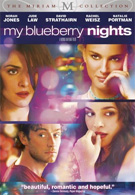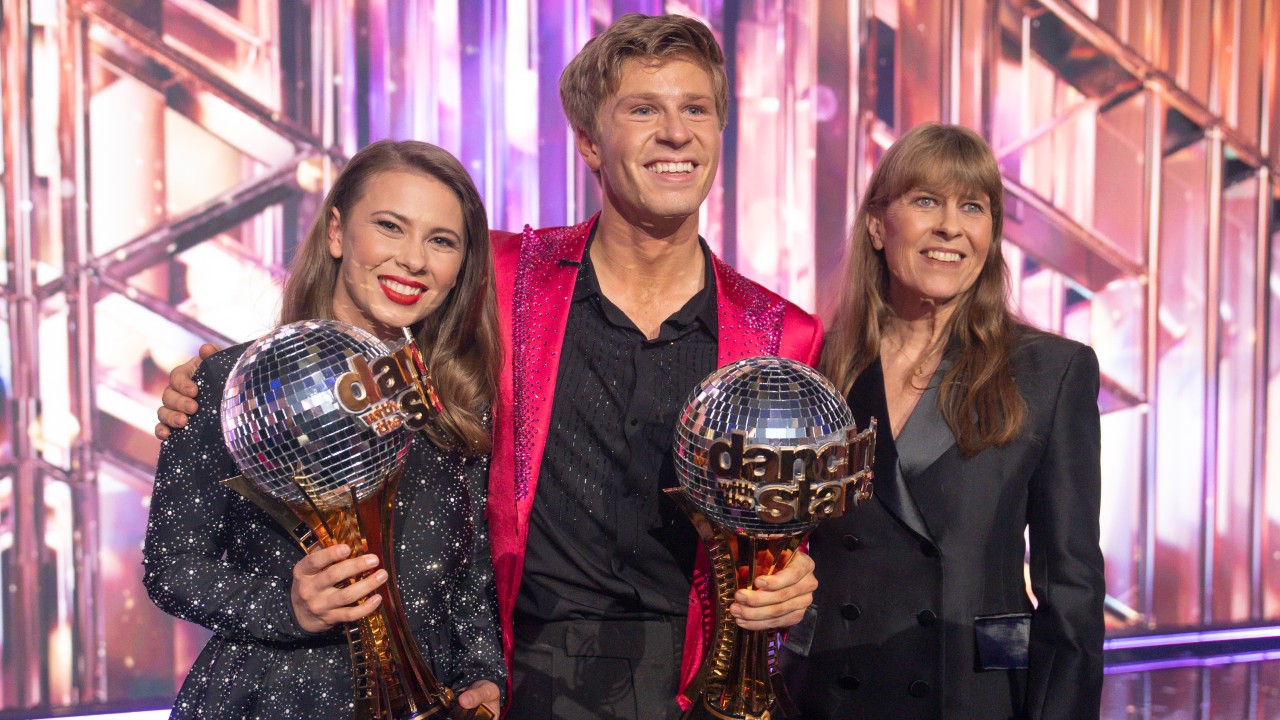Elizabeth (Norah Jones) is in the throes of a bad breakup when she walks into a NYC cafe’ run by the sympathetic and charming Jeremy (Jude Law). The two quickly develop an intimate friendship. Over blueberry pies and pastries during late nights at the cafe, they talk about heartbreaks, longings, and what to do with their ex’s keys. Just when Jeremy thinks they are getting somewhere, Elizabeth takes off on a cross-country road trip to heal her heart. She keeps in touch with him during her journey through letters and postcards, but never with a fixed address. In Memphis, working as a waitress by day and a bartender by night, Elizabeth meets an alcoholic cop named Arnie (David Strathairn) who just can’t let go of his cheating wife, Sue Lynn (Rachel Weisz). Later, at a casino in Reno, she falls under the charms of a lying young card shark named Leslie (Natalie Portman), who hides a softer heart behind her hardened exterior. Elizabeth’s travels eventually bring her back home to New York, where Jeremy has a seat still reserved for her at the cafe’.
My Blueberry Nights is a Wong Kar-Wai movie and Kar-Wai is nothing if not a very specific brand. This is his first American movie but not his first movie about America, or rather about the idea of America. Kar-Wai is a romantic and his movies ooze with characters dreaming, longing, wishing, hoping and just missing the chance to connect with that special someone. His 2000 film In The Mood For Love is perhaps the most apt title a filmmaker ever gave to one of his works. It perfectly captures his closing time, after midnight dream of lost romance and lost time. This is where his choice to cast singer-songwriter Norah Jones makes great sense. Hearing one of her soulful songs, it’s not hard to imagine her sitting at the piano of some rainswept bar tapping away at the keys for some lone patron during the last call. This would be Kar-Wai himself, still wearing his trademarked sunglasses, and dreaming of images that feel like hazy memories, played back in a blurry slow motion loop. Kar-Wai stops these moments in time, stretching out the casual glances, smiles or caresses so they can reveal their secrets over and over.
But Kar-Wai’s strengths can often be his weakness as well. Nights is so concerned with capturing the “moment” that it feels formless and adrift narratively. It’s less a feature film than a collection of short films with Elizabeth as a kind of Nick Carraway in a series of Raymond Carver-like vignettes about human frailties. The vignettes are interesting in themselves but as usual with this type of structure, the whole just does not equal the sum of the parts.
What does work is the casting. Since the film becomes “about” the people Elizabeth meets, these people have to be interesting. Everyone is on their “A” game here including Jude Law who initially seems absurd as a lovelorn cafe owner in NYC. Once that shock is over, Law is more genuinely likable and charming than he has ever been before. David Strathairn has long been one of our best actors and he clearly relished the opportunity to play a cop who is one kind of person during the day and another after drinking at night. He has what is probably the movie’s best scene where he explains to Elizabeth about the AA chips he’s collected. Weisz and Portman give equally fine performances, though Weisz in particular is given a sketchy role to work with. Norah Jones is mostly an innocent bystander in these vignettes. She does a competent job in the role but it doesn’t require much heavy lifting.
The film has been generally accepted as a cinematic disappointment of sorts but it’s clearly just a problem of perception. It’s not Kar-Wai’s best work, but cast Tony Leung and Maggie Cheung in the leads, toss in subtitles and some of the same dissenters may be calling it his latest masterpiece. My Blueberry Nights is very much in the same vein as Chungking Express and Happy Together only it’s in English with a cast familiar to Western audiences. It has the director’s strengths and weaknesses all over it, so if you are a fan, this will play like a strong B-side to his Hong Kong films. If you are not, much of this movie will seem odd, uninvolving, fragmented and incomplete. The Weinstein Company includes this in their Miriam collection named after their mother. She was the MIR in Miramax, Max being the Weinstein’s father.
Due to Wong Kar-Wai’s very extreme color timings, it’s always a risk that he will break the color barrier on the DVD. But the images hold together here and the colors are well presented.
The extras included are limited to a standard “Making of” piece which focuses on the stars, particularly Norah Jones, and a Q&A segment with Wong Kar-Wai held at the Museum of the Moving Image in New York. Both are short, each running about 15 minutes, but the Q&A is quite informative as Kar-Wai openly discusses his filmmaking style and methods. A still gallery and the theatrical trailer round out the set.
Your Daily Blend of Entertainment News
Now, the great big pink elephant in the room is the missing 16 minutes that were cut out following the film’s less than enthusiastic reception at the Cannes Film Festival. Those 16 minutes were cut prior to the film’s US release in just 69 theaters. With the film’s future lying in DVD and digital releases, you would think that a director’s cut would be made available. In fact, you would think that for a film with a low profile like this one that the missing 16 minutes would’ve been a real selling point. But maybe that’s just the process of these releases today, where we have My Blueberry Nights: Extra Special Extreme Dirctor’s Cut You’ve Never Seen Before Edition to look forward to.

